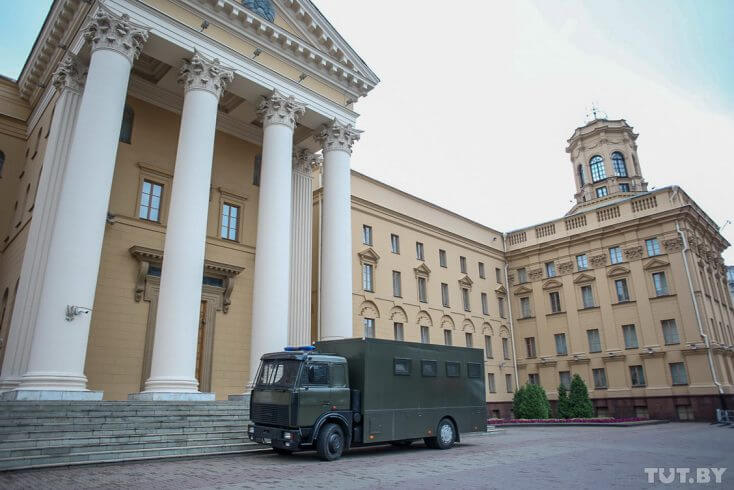Information ministry demands that sellers remove literature “harmful to national interests”

November 13, Pozirk. The information ministry has instructed book and print media traders to remove items “harmful to national interests” from sale.
The ministry defines “harmful” as “print publications distorting historical truth and justice, promoting untraditional sexual relations, religious intolerance, violence, cruelty, pornography, inciting enmity and hatred, promoting subcultures untraditional for Belarusian society, as well as periodicals on sexual education of children that can have a negative effect on their physical and psychological development or distort the idea of true family values.”
The order itself suggests that so-called “harmful” literature still reaches sales outlets circumventing the all-pervasive government network of censorship councils established in the last few years.
Since February 2021, former Information Minister Lilija Ananič has headed a national commission that advises to prosecutors what products should be branded as extremist content and banned from distribution.
Based on the commission’s advice, courts have banned works of literature, music and art, including poems by Belarusian classic Vincent Dunin-Marcynkievič, a novel by contemporary writer Alhierd Baharevič, songs by the punk rockers Daj Darohu! and other bands, an edition of selected works by Belarusian National Republic Prime Minister Vacłaŭ Łastoŭski and three books by Ihar Mielnikaŭ, a historian sentenced on September 13 to four years in prison for an interview with Euroradio.
The National Council on Historical Policy last month vowed to purge book stores and education establishments of extremist literature. The council is chaired by Dźmitryj Krutoj, head of the Alaksandar Łukašenka administration.
In October, Minsk has canceled “My Husband’s Mistresses” at the request of the Public Morality Council.
The Belarusian Exarchate of the Russian Orthodox Church and the pro-government Union of Writers of Belarus founded the council in 2009 “to preserve and strengthen society’s moral values and traditions, which are based on the centuries-old creative, spiritual and cultural experience of the Belarusian people.”
Also read: Historical policy council concerned about “extremist” literature
- PoliticsMinsk to negotiate visa free travel to Saudi Arabia for officialsThe material is available only to POZIRK+
- Economy, PoliticsBelarus holds 496 Lithuanian trucks, 575 semi-trailers - LINAVAThe material is available only to POZIRK+
- Economy, Security, SocietyThree men jailed in Lithuania for smuggling cigarettes from BelarusThe material is available only to POZIRK+
- PoliticsKGB adds eight to list of terroristsThe material is available only to POZIRK+
- EconomyVacancies for foreigners rise by nearly 17 percent in Belarus over a monthThe material is available only to POZIRK+
- Security, SocietyLithuania turns nine African migrants back to BelarusThe material is available only to POZIRK+
- Politics, SecurityConscription-age men given 24 hours to report for military trainingThe material is available only to POZIRK+
- PoliticsFaction Biełarusy quits Coordination CouncilThe material is available only to POZIRK+
- PoliticsOpposition leader urges OSCE PA to establish working group on BelarusThe material is available only to POZIRK+
- Economy
- PoliticsEU Delegation welcomes Statkievič’s release, urges Minsk to free all jailed dissidentsThe material is available only to POZIRK+
- Politics
- Economy, Politics
- PoliticsInterior ministry designates 22 as extremistsThe material is available only to POZIRK+
- EconomyBiełstat: Belarusian companies’ CapEx down 6.1 percent in JanuaryThe material is available only to POZIRK+
- PoliticsEU sanctions extension to rule out Belarus potash transit – BudrysThe material is available only to POZIRK+
- PoliticsReprisals: nearly 400 “extremism” cases filed in Viciebsk region in 2025The material is available only to POZIRK+
- Politics
- Politics, SecurityPoland detects undocumented migrants after 30 days without incidents during cold spellThe material is available only to POZIRK+
- PoliticsBelarus’ foreign minister attends cultural event in Minsk instead of Board of Peace in WashingtonThe material is available only to POZIRK+



